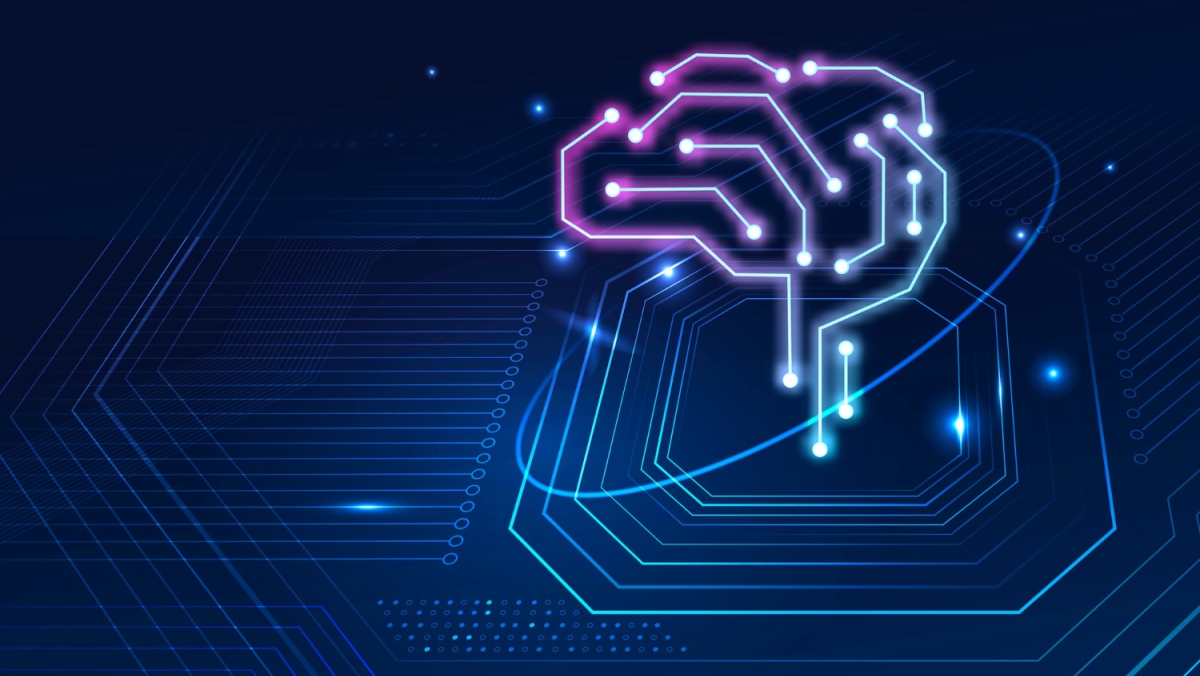Harnessing the power of AI: a business perspective
Artificial Intelligence (AI) is no longer a futuristic concept, it's rapidly transforming industries across the globe.
From advancements in Natural Language Processing (NLP), which enables computers to understand and interpret human language, to the rise of autonomous systems, AI is poised to revolutionize how we live and work. This interview delves into the impact of AI on businesses, exploring its potential to revolutionize operations, enhance decision-making, and unlock new avenues for growth.
To gain insights into how AI is being leveraged to address critical business challenges and drive innovation we interviewed Giovanni Fresia, Group IT Director at Nissha Metallizing Solutions (NMS). Through insightful discussions, we will explore the practical applications of AI and the future of AI in the ever-changing business world.
“Artificial intelligence is rapidly changing our world. In your opinion, how would you briefly explain the concept of AI to someone with little or no technical knowledge, and what are your thoughts on its potential impact on businesses, both positive and negative?”
“Sure. In essence, artificial intelligence refers to the development of computer systems capable of performing tasks that typically require human intelligence. This includes a wide range of capabilities, such as learning from data, recognizing patterns, making decisions, and even creative problem solving. Think of it as giving computers the ability to “think” and “learn” in a way that mimics human cognition.
Given the transformative potential of AI, it presents both significant opportunities and potential challenges for businesses. On the positive side, AI can automate repetitive tasks, improve operational efficiency, personalize customer experiences, and extract valuable insights from data. This can lead to increased productivity, reduced costs, and enhanced competitiveness.
However, there are also potential risks associated with the widespread adoption of AI. These include job displacement, ethical concerns around data privacy and bias, and the potential for misuse of AI technologies. Therefore, a responsible and ethical approach to AI development and implementation is crucial. This includes investing in robust data security measures, ensuring fairness and transparency in AI algorithms, and fostering a skilled workforce capable of developing and managing AI systems.”

"So, having said that artificial Intelligence is evolving rapidly, how does AI fit into NMS's overall business strategy?”
“The AI revolution is undeniably upon us. It's no longer a futuristic concept, but a present reality. At NMS, we see AI as a strategic imperative, not just a technological trend. We believe that by strategically leveraging AI, we can unlock significant value across our organization. This includes enhancing operational efficiency, improving customer experiences, developing innovative products and services, and gaining a competitive edge in an increasingly dynamic market. In other words, AI will be a key driver of our future success, it will be deeply intertwined with our business goals and long-term vision.”
“Can you describe some of the specific AI initiatives NMS is currently undertaking?”
“Absolutely. First of all, we have partnered with Avanade Italy to explore the potential of AI within our business. But, we've also embarked on a multi-phased approach to AI implementation, starting with "Horizon 1" initiatives outlined in our AI-First Roadmap for FY 2025. This phase focuses on immediate impact and includes several key projects:
- Generative AI Prototypes: We are actively developing and testing prototypes that leverage generative AI capabilities to enhance various aspects of our business, such as content creation, customer support, and product design.
- AI Readiness Assessment: We are conducting a thorough assessment of our organization's readiness for AI adoption, including data infrastructure, talent capabilities, and ethical considerations.
- Change Management Program: Recognizing the importance of human capital, we are implementing a comprehensive Change Management program to prepare our workforce for the AI-powered future. This includes training programs, reskilling initiatives, and fostering a culture of innovation and experimentation.
These initial projects will lay the foundation for future phases of our AI journey, enabling us to scale AI adoption across the organization and unlock its full potential.”

“What are the key challenges NMS faces in its AI journey?”
“Like any significant technological transformation, our AI journey presents its own set of hurdles. High-quality, reliable, and secure data is fundamental for successful AI implementation. Ensuring data quality and establishing a robust data infrastructure are paramount.
As we integrate AI into our operations, it's crucial to address ethical concerns such as data privacy, bias mitigation, and responsible AI development but we are committed to developing and adhering to a robust ethical framework for AI deployment. Finally, ensuring successful change management is vital. Adapting to an AI-powered future requires a significant cultural shift. Our Change Management program plays a critical role in ensuring a smooth and successful transition for our employees. Addressing these challenges proactively will be essential to ensure the successful and responsible adoption of AI within NMS.”
“You previously mentioned that successful AI implementation necessitates a significant cultural shift within an organization. Could you elaborate on how NMS is preparing its employees to effectively navigate and thrive in this AI-driven future?”
“The success of our AI initiatives hinges on our people. Our Change Management program plays a pivotal role in this endeavor. We are investing heavily in employee training and development, focusing on several key areas.
Firstly, we are upskilling our existing workforce by providing comprehensive training on AI concepts, tools, and technologies. This empowers our employees with the knowledge and skills they need to thrive in an AI-driven environment.
Furthermore, we foster a culture of learning and experimentation. We encourage employees to explore AI technologies, experiment with new ideas, and embrace the opportunities presented by this transformative technology. By equipping our employees with the knowledge and skills they need, we can ensure a smooth and successful transition to an AI-driven future.”
“What are NMS’s long-term aspirations in AI?”
“At NMS, our long-term vision for AI is ambitious. We want to build a robust and scalable data infrastructure that enables advanced AI applications and analytics. Building on successful AI prototypes, we aim to translate them into production-ready solutions that deliver tangible business value. By seamlessly integrating AI into most aspects of our business, from customer service and product development to supply chain management and risk management, we aim to achieve a significant competitive advantage. This strategic embrace of AI will drive innovation, create sustainable value for our stakeholders, and unlock unprecedented levels of efficiency and growth for NMS.”
In conclusion, the successful integration of AI into organizations requires a multi-faceted approach. Organizations must prioritize data quality and security, invest in employee training and development, and establish clear ethical guidelines for AI development and deployment. By fostering a culture of innovation and embracing responsible AI practices, companies can unlock the transformative potential of this technology to drive efficiencies, improve customer experiences, and gain a competitive edge in the ever-evolving global marketplace. As AI continues to evolve, constant adaptation, continuous learning, and a proactive approach will be critical for organizations to thrive in this new era of technological advancement.